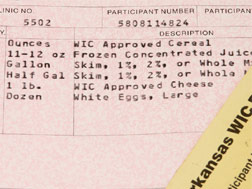
Welfare Reform: Social Impact; Welfare Reform: Personal Responsibility 1997
Distributed by Films Media Group, PO Box 2053, Princeton, New Jersey 08543-2053; 800-257-5126
Produced by Golden Dome
Director n/a
VHS, color, 27 min.
Adult
Sociology, Political Science
Date Entered: 11/09/2018
Reviewed by Gerald Notaro, University Librarian, Nelson Poynter Memorial Library, University of South Florida, St. PetersburgWelfare Reform: Social Impact and Welfare Reform: Personal Responsibility are two parts of the series America's Promise: Who's Entitled to What? from Films for the Humanities and Sciences. Both take a serious and objective look at the welfare system in the United States. They describe a comprehensive, yet somewhat repetitive, history of welfare in the U.S. Welfare Reform: Social Impact reveals how FDR nationalized the Widows Pension Act as an alternative to placing children into orphanages. His actions protected the most vulnerable in our society and shifted charitable and social responsibility from local to federal levels. This has earned him the dubious moniker "The Father of Welfare." At that time, the majority of recipients were widows. By 1950, the majority were divorced mothers, and by 1990, single, never married mothers. In 1960, 9% of welfare recipients were single parent households; by 1992, 27%. The Reagan years shifted responsibility back to the states, and Clinton's legislation fulfilled his promise to "end welfare as we know it."
No one was happy with welfare as it was, calling it "a substitute for a regular lifestyle," and both sides of the political spectrum have demanded reform. Wisconsin Governor Tommy Thompson and his innovative WorkFair program figure prominently in both videos. He takes the federal Personal Responsibility Act of 1996 at its literal word: cash for work, even if it is community service. Although Governor Thompson eagerly announces a 40-50% drop in the welfare rolls, welfare reform is not without it critics. Many point to crowded homeless shelters and high unemployment among the untrained. Welfare Reform:Personal Responsibility especially examines our society's basic moral and religious issue: what do we as a society owe those who are less fortunate. Both videos use narrative from prominent academic, government, and social leaders in the field of poverty. Both reveal an often overlooked result that off welfare does not often mean out of poverty.
Recommended for both academic and large public library collections.